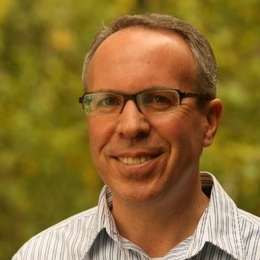Aging LGBT Adults Face Bias, Poverty and Isolation
Policymakers must consider these challenges, a new report says
When people talk about discrimination, it’s unlikely they’re thinking about lesbian, gay, bisexual and transgender (LGBT) older adults. “That’s not where the conversation usually goes,” says Serena Worthington, director of national field initiatives at SAGE (Advocacy & Services for LGBT Elders).
Understanding Issues Facing Older LGBT Adults, a report co-authored by SAGE and MAP, the Movement Advancement Project, released May 25, is an effort to shift the conversation by calling attention to the challenges and resilience of an estimated 2.7 million Americans.
Citing economic security, social connections and health and well-being as “cornerstones of successful aging,” it calls for ensuring that those long at the forefront in the fight for equality, fairness and advancement of civil rights are supported as they age.
“We’re so lucky we get to live with legends,” says Heron Greenesmith, senior policy analyst for MAP. “Ours is a young movement and many of the change-makers are still alive.”
Concern Over Deleted Questions by Trump Administration
The release of the report comes two months after news surfaced that the Trump administration had removed questions about sexual orientation and gender identity from the National Survey of Older Americans Act Participants (NSOAAP), an annual survey used to determine what services will be provided to older Americans in need.
Administered by the Department of Health and Human Services (HHS), the survey gathers data from individuals who make use of senior centers and/or receive transportation, homemaker and meal services.
Questions about sexual orientation and gender identity, which had been added in 2014, are reportedly the only ones eliminated from the draft of the 2017 survey. A similar change was made to the Annual Program Performance Report for Centers for Independent Living, another HHS-sponsored survey that impacts some LGBT older Americans. (A Medscape article has cited media reports that a Trump administration official said the LGBT questions were being dropped from the Older Americans Act survey because the inclusion in prior surveys was merely a pilot test and the response was found to be too small to have reliable significance.)
Impact on Vulnerable LGBT Older Adults
The removal of such questions matters greatly, says Roddy Flynn, executive director of the Congressional LGBT Equality Caucus.
“From the surveys that have been done, we know that our LGBT seniors face higher rates of poverty, greater health disparities and have fewer close familial ties and social support systems. It follows that these seniors will need to use OAA (Older Americans Act) programs perhaps at a higher rate than the general population,” he says. But there’s no way of knowing how many LGBT older adults are or are not using such programs if the question is not asked.
Flynn sees MAP’s and SAGE’s report, which aggregates data from other studies, filling a critical gap.
“Data is the first step in good policymaking,” he says. “With the Trump administration abdicating its responsibility to ensure federal programs are reaching older LGBT Americans, it is incredibly useful to have private groups pick up this vital function.”
Differing Needs of Racial Minorities, Transgender Adults
That LGBT older adults are not a monolithic group is one of many important points made by the report’s authors. For example:
- Higher levels of LGBT-related discrimination are experienced by LGBT older adults of color, resulting in lower levels of household income, educational attainment, identity affirmation and social support.
- Social isolation has an especially acute impact on the health and well-being of older bisexual adults, who are particularly prone to depression.
- Health of transgender older adults suffers when they are forced back into the closet due to discrimination or stigma.
And yet, there are commonalities. Overall, physical and mental health disparities remain high among all categories of LGBT older adults, who have experienced discrimination, social stigma, family rejection and the aging and deaths of their support networks.
Lack of ‘Cultural Competence’ in Health Care
Finding competent, inclusive health care is another widely shared experience of LGBT older adults. It’s for that reason that Greenesmith emphasizes the value of the report for medical providers and staffs of residential facilities who are being trained in cultural competence.
Relying on “chosen families” (circles of peers) has proven to be an additional obstacle. Such relationships lack legal recognition required to take time from work, share health insurance plans or make medical decisions. Friend networks also often age simultaneously, “meaning they may not be in the physical or mental condition to care for one another adequately,” the report says.
Given the many forms of discrimination that LGBT elders have endured — in employment, housing, retirement, health care, long-term care and other places of public accommodation — one piece of information that may surprise is the level of optimism reported.
“LGBT adults 65 and older responding to a 2013 survey from Pew Research Center were far less likely to say they were ‘not too happy,’ compared to those under 50 (6 percent versus 19 percent),” the SAGE/MAP report says.
Legislative Changes Urged
Many of the recommendations provided meet Greenesmith’s call for “robust anti-discrimination legislation.”
These include:
- passing comprehensive employment and housing nondiscrimination protections
- revising federal and state programs to recognize relationships of same-sex couples when one partner died before freedom to marry was the law of the land
- designating LGBT older adults as an underserved population within the Older Americans Act
As a result, legislators and other policymakers, as well as service providers, advocates and members of the aging network, are among those Worthington would like to see read the report. Greenesmith says it’s important, too, that LGBT older adults see themselves and their lives reflected.
If enacted, the policy recommendations in this report would serve a group whom Worthington describes as a “community of giants” — Americans who paved the way for civil rights advances and who are still organizing, making calls and continuing to fight for equal rights.
Next Avenue Editors Also Recommend:


